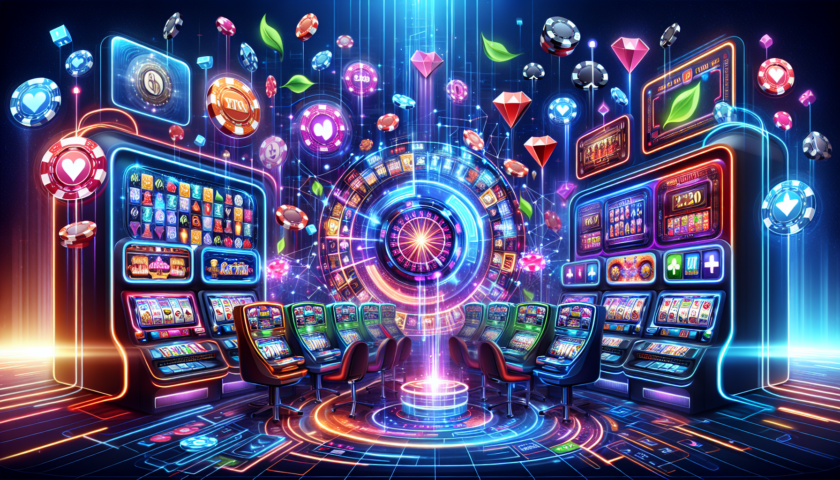
Exploring the Evolution and Impact of Social Integration in Online Gaming Platforms
Online gaming has evolved into a global phenomenon, with millions of players engaging in digital worlds daily. As the technology behind these platforms improves, so does the experience for users Hoki805. However, beyond the graphics and gameplay, there’s one aspect that has revolutionized the way people interact within these digital realms: social integration.
Social features have become increasingly pivotal in online gaming platforms, transforming how players engage with one another. They bridge distances, allowing individuals to interact, form relationships, and share experiences in virtual spaces. The blending of social networking features with gaming has made these platforms not only places to play but also virtual communities where social bonding thrives.
1. The Emergence of Social Gaming Platforms
In the early days of online gaming, the focus was primarily on gameplay mechanics, where players engaged with one another in isolated matches or tournaments. However, platforms like Xbox Live, PlayStation Network, and Steam started to introduce basic social features, such as friend lists, messaging, and multiplayer functionalities. These early steps toward social integration laid the groundwork for a more connected gaming environment.
Over time, gaming platforms evolved to include richer social tools. Players could now not only challenge friends to matches but also invite them to join in virtual worlds, share content, or collaborate on missions. The development of in-game voice chat, social feeds, and integrated party systems meant that players could communicate seamlessly, enhancing both cooperation and competition.
2. Building Virtual Communities: More Than Just Games
What distinguishes modern online gaming platforms from their predecessors is the rise of virtual communities that extend far beyond gaming. Platforms like Discord and Twitch have redefined the social aspect of gaming by offering spaces where players and content creators can build dynamic communities. These communities offer far more than just game-related discussions—they encompass everything from real-life topics to creative projects, even fostering friendships and collaborations that extend outside the digital realm.
Discord, in particular, has blurred the lines between social media, gaming, and real-time communication. It provides an inclusive environment where users can interact via text, voice, or video, and create servers dedicated to specific games, interests, or social causes. This platform, initially designed for gamers, has now become a cross-functional tool for virtually any type of community-building, from casual chat groups to professional networking.
3. Player Interaction: The Rise of Social Gameplay Features
Recent developments in online gaming platforms have led to deeper social integrations, allowing players to interact in a variety of ways beyond the standard multiplayer modes. Games like Fortnite, Roblox, and Minecraft offer virtual spaces where players can create, explore, and socialize in unique ways.
- In-Game Events: Platforms like Fortnite have pioneered live in-game events, where millions of players can experience something together—like concerts or special story-driven events—creating a shared social experience.
- Content Creation & Sharing: Games like Roblox and Minecraft allow users to design and share their own virtual worlds and experiences, fostering a sense of ownership and community building. The collaborative nature of these platforms encourages players to work together to create and refine content, whether it’s in the form of virtual structures, challenges, or entire game modes.
- Streaming and Esports: Platforms such as Twitch and YouTube Gaming have introduced a whole new way of experiencing online games through live streaming. Gamers can watch others play, chat in real-time, and even interact with streamers, forging connections that feel more like communal experiences than passive viewing. Esports tournaments have also become global events, drawing in not only competitors but massive audiences, who cheer on their favorite teams and players.
4. The Psychological Impact of Social Gaming
While gaming can often be seen as a solitary activity, the social integration of online platforms has introduced a psychological dimension. Studies have shown that social interaction in games can significantly improve players’ mental well-being, promoting a sense of belonging and reducing feelings of isolation. Players now have a space to connect with others, form friendships, and even find emotional support.